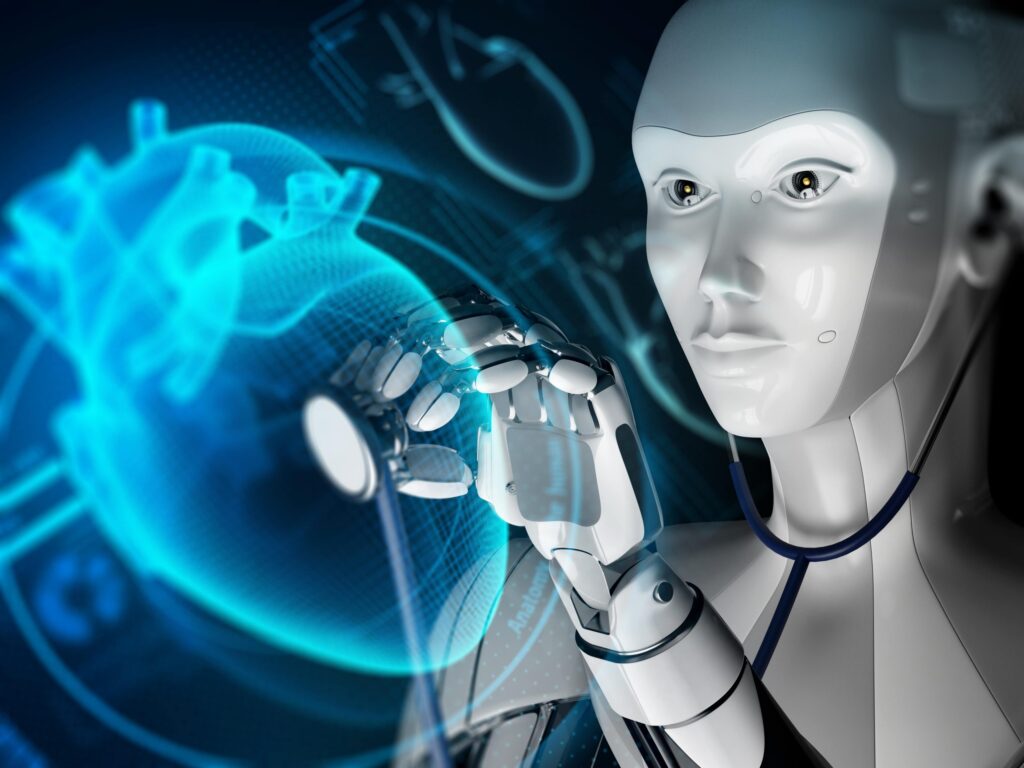Artificial Intelligence (AI) is transforming the healthcare landscape, particularly in the realm of diagnosis. By leveraging vast amounts of data and advanced algorithms, AI is enhancing the accuracy and efficiency of medical diagnoses. This article explores various aspects of how AI is revolutionizing diagnosis in healthcare.
Enhanced Diagnostic Accuracy
AI technologies, particularly machine learning algorithms, are capable of analyzing complex medical data with remarkable precision. These systems can identify patterns and anomalies in imaging studies, such as X-rays and MRIs, that may be missed by the human eye. For instance, AI has shown promise in detecting early signs of diseases like cancer, where timely intervention is crucial for patient outcomes.
Moreover, AI can continuously learn from new data, improving its diagnostic capabilities over time. This adaptability allows healthcare providers to rely on AI for more accurate diagnoses, ultimately leading to better patient care and reduced misdiagnosis rates.
Predictive Analytics in Disease Diagnosis
Predictive analytics powered by AI can forecast potential health issues before they manifest. By analyzing patient data, including medical history, lifestyle factors, and genetic information, AI can identify individuals at high risk for certain conditions. This proactive approach enables healthcare providers to implement preventive measures, improving overall health outcomes.
For example, AI algorithms can predict the likelihood of developing chronic diseases such as diabetes or heart disease, allowing for early interventions that can significantly alter the course of these conditions. This shift from reactive to proactive healthcare is a game-changer in the industry.
Streamlining the Diagnostic Process
AI is streamlining the diagnostic process by automating routine tasks and reducing the burden on healthcare professionals. For instance, AI-powered chatbots can handle initial patient assessments, gathering relevant information before a physician’s consultation. This not only saves time but also ensures that healthcare providers have access to comprehensive patient data from the outset.
Additionally, AI can assist in triaging patients based on the severity of their conditions, ensuring that those who need immediate attention receive it promptly. This efficiency is particularly beneficial in emergency settings, where time is of the essence.
Integration of AI in Radiology
Radiology is one of the fields where AI has made significant strides. AI algorithms can analyze medical images with high accuracy, assisting radiologists in identifying abnormalities. For example, AI systems can detect tumors, fractures, and other critical conditions in imaging studies, providing radiologists with valuable second opinions.
This integration not only enhances diagnostic accuracy but also reduces the workload for radiologists, allowing them to focus on more complex cases. As AI continues to evolve, its role in radiology is expected to expand, further improving patient care.
AI in Pathology
In pathology, AI is revolutionizing the way tissue samples are analyzed. Machine learning algorithms can evaluate histopathological images, identifying cancerous cells and other abnormalities with remarkable precision. This technology aids pathologists in making more accurate diagnoses and treatment decisions.
Furthermore, AI can assist in quantifying tumor characteristics, providing valuable insights into the aggressiveness of cancer. This information is crucial for developing personalized treatment plans, ultimately leading to better patient outcomes.
Telemedicine and AI Diagnostics
The rise of telemedicine has been accelerated by AI technologies, enabling remote diagnosis and consultation. AI-powered tools can analyze patient data collected through telehealth platforms, providing healthcare providers with insights that facilitate accurate diagnoses without the need for in-person visits.
This is particularly beneficial for patients in rural or underserved areas, where access to healthcare may be limited. By leveraging AI in telemedicine, healthcare providers can ensure that patients receive timely and accurate diagnoses, regardless of their location.
Ethical Considerations in AI Diagnostics
As AI becomes more integrated into healthcare, ethical considerations surrounding its use in diagnostics are paramount. Issues such as data privacy, algorithmic bias, and the transparency of AI decision-making processes must be addressed to ensure that AI technologies are used responsibly.
Healthcare providers must establish guidelines and regulations to govern the use of AI in diagnostics, ensuring that patient safety and ethical standards are upheld. Engaging stakeholders, including patients, in discussions about AI’s role in healthcare is essential for building trust and acceptance.
Future Trends in AI Diagnostics
The future of AI in
| Aspect | Description |
|---|---|
| Introduction | Artificial Intelligence (AI) is transforming healthcare by enhancing diagnostic accuracy, improving patient outcomes, and streamlining processes. |
| Improved Diagnostic Accuracy | AI algorithms analyze medical data, such as imaging and genetic information, to identify diseases more accurately than traditional methods. |
| Predictive Analytics | AI systems can predict disease outbreaks and patient deterioration by analyzing trends and patterns in health data. |
| Personalized Medicine | AI enables tailored treatment plans based on individual patient data, leading to more effective therapies and better outcomes. |
| Efficiency in Workflow | AI automates administrative tasks, allowing healthcare professionals to focus more on patient care rather than paperwork. |
| Telemedicine | AI enhances telemedicine by providing virtual assistants that can triage patients and offer preliminary diagnoses remotely. |
| Challenges | Despite its benefits, AI in healthcare faces challenges such as data privacy concerns, the need for large datasets, and the integration of AI systems into existing workflows. |
| Future Prospects | The future of AI in healthcare looks promising, with ongoing research aimed at improving algorithms and expanding their applications in various medical fields. |




